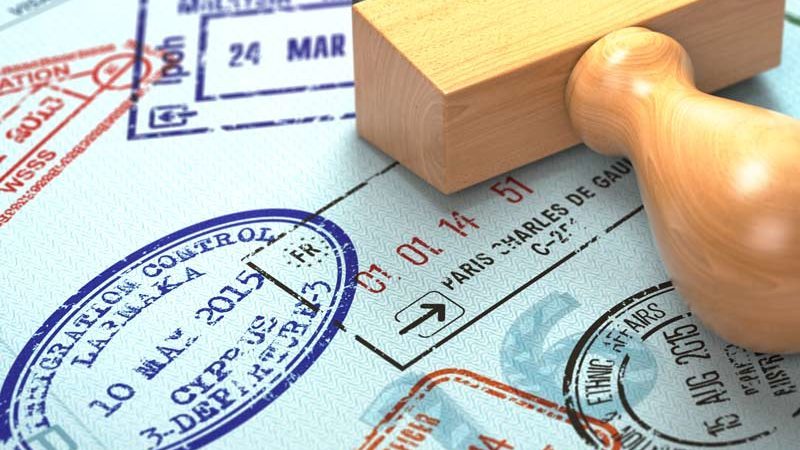
Principle in dubio pro libertate
En caso de duda, a favor de la libertad
Digest 50.17.20 Pomponius. “Quotiens dubia interpretatio libertatis est, secundum libertatem respondendum erit“, that is to say, when the interpretation of freedom is doubtful, it will be answered in favor of freedom.
The fact that in the extraditional process the existence of criminal responsibility is not revealed, but rather the compliance by the requesting State of the guarantees provided in the regulations on extradition does not mean that if the person sought does not voluntarily agree to extradition, this implies their will to avoid the action of Justice.
Pretrial detention in extradition cases
In the field of international legal cooperation, the basis of pre-trial detention has certain characteristics that make it different from a “normal” criminal process. What does “normal” mean? It means that in the field of extradition what is sought is to guarantee the availability of the requested person for possible surrender, thus avoiding the risk of flight.
Within the framework of what is stated in the preceding paragraph, it is extremely important to argue and justify that the availability of the requested person can be supported with alternative measures to provisional detention such as: the provision of bail, the deposit of the passport, the appearance in court, etc.
Therefore, it cannot be assumed that in extradition proceedings the general rule would have to be the imposition of a custodial precautionary measure. Said conclusion would violate the principles of exceptionality and indubio pro libertate that should govern the application of measures restricting freedom. On the other hand, as we have indicated supra, the imprisonment of the extradited person is not the only measure that can be adopted to ensure the presence before the extradition judge.

Precautionary measures in the field of extradition
It is unquestionable that maintaining an exceptional precautionary measure of this caliber requires the consideration of subjective elements. Let us remember that the maintenance of preventive detention prevents the claimed person from accessing prison benefits such as exit permits or semi-release regime.
From the perspective that the general rule is freedom, and not imprisonment, the criteria of exceptionality, favor libertatis and necessity (as a precautionary measure), inform provisional imprisonment, as the Constitutional Court has been holding for a long time when stating that :
«The establishment of the principles that inform the institution of provisional detention must firstly repair its restrictive nature of liberty, which is directly related to custodial sentences, with whose material content basically coincides (STC 32 / 1987, fj 3º), and, secondly, in divergence now with the penalty, in that the subject who suffers the measure has not been found guilty of carrying out a criminal act and enjoys, consequently, the presumption of his innocence “[1].
Why provisional imprisonment?
The figure of the provisional prison responds to the need to combine a series of risks of a relevant nature for the process and, where appropriate, for the execution of the Judgment, which originate from the accused, namely: his removal from the action of Justice , the obstruction of the criminal investigation and, in a different but closely related plane, the repetition of the crime.
Given the agreed measure and the events that occurred, it is necessary for these elements to be weighed in order to constitute the “canon of rationality” required by the Constitutional Court to adopt the provisional detention measure.
We are lawyers specialized in extraditions. Our firm puts at your disposal expert lawyers in Active, Passive and Euro-Order Extradition.
Solution for provisional detention in extradition cases
The problem posed by the precautionary measure of the extradition files in the legal-penitentiary relationship would admit the following solution: Modify the procedural situation in the extradition files, agreeing to provisional release instead of the precautionary measure of preventive detention agreed for the assurance of extradition.
The solution to which we allude has regulatory coverage in art. 16.4 of the European Extradition Convention -Instrument of ratification of April 21, 1982, of the European Extradition Convention, made in Paris on December 13, 1957-, where it is established that:
“Preventive detention may end if, within eighteen days following it, the requested Party has not received the request for extradition of the documents mentioned in Article 12, in no case the detention will exceed forty days, counted from the date of the date of the same. However, provisional release will be possible at any time, but in such a case the requested Party will have to take the measures it deems necessary to prevent the escape of the person sought “.
As a corollary to the foregoing, the response to harmonize and reconcile the different interests at stake must take into account the requirements and particularities provided for in art. 8.3 of the Passive Extradition Law, which regulates the measures that can be adopted to prevent flight, where it is established that:
«The judge may, at any time and in light of the circumstances of the case, agree to release the detainee, adopting one or more of the following measures to prevent his escape: home surveillance, order not to leave a specific place without the authorization of the Judge, order to appear periodically before the authority designated by the Judge, withdrawal of passport and provision of a bond. Failure to comply with these measures will give rise to provisional imprisonment within the period established in the previous section ”.
All the measures contemplated in art. 8.3 Passive Extradition Law would be more than suitable, convenient and sufficient measures to be able to modify the situation of provisional prison and agree to provisional release.
[1] 2nd Chamber, S 26-7-1995, nº 128/1995, BOE 200/1995, of August 22, 1995, rec. 993/1995
